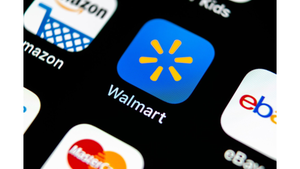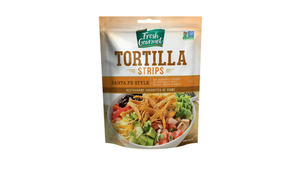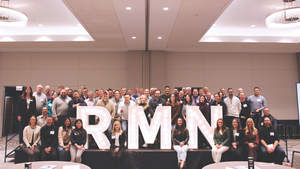THE SOFT SELL
Fluffy advertising campaigns and a bouquet of new formulations and scents are keeping the fabric softener and dryer sheets category April fresh, something that could help supermarket retailers stem the tide of sales moving from their stores to other classes of trade.However, manufacturers have their work cut out for them in softening consumer resistance to ultra concentrate products, which are still
August 21, 1995
RICHARD TURCSIK
Fluffy advertising campaigns and a bouquet of new formulations and scents are keeping the fabric softener and dryer sheets category April fresh, something that could help supermarket retailers stem the tide of sales moving from their stores to other classes of trade.
However, manufacturers have their work cut out for them in softening consumer resistance to ultra concentrate products, which are still viewed by many as being "half the product at twice the price," retailers told SN.
In spite of a recent overall loss by supermarkets in market share to other merchants, some retailers said the category is still performing well.
"We still outpace our market share on sheets. Business is as good as can be," said John Burger, category manager at Randalls Food Markets, Houston.
"Fabric softeners are a good impulse item," said Al Young, category manager at Big Y Foods, Springfield, Mass. To further increase sales, Young said he often cross-merchandises fabric softeners and dryer sheets with laundry detergents.
Roger Burks, senior vice president of retail operations at Mad Butcher, Pine Bluff, Ark., said fabric softener sales are extremely strong at his nine supermarkets.
"We have a lot of hard water in Arkansas, so the people are just about forced to use fabric softeners. We have a lot of rural areas that have hard water," he said.
However, it hasn't been all smooth sailing for the category. Paul J. Kelly, principal of Silvermine Consulting Group, Westport, Conn., said the reception for ultra concentrated fabric softeners has been a mixed bag, as was the case with their detergent cousins.
"Ultras make so much sense from so many different perspectives, but if the consumer isn't buying, it's a problem," he said. "Lever Bros. went heavily into it and I think they got burned to a certain extent."
"The ultra products have still not caught on," said Young of Big Y. "One reason is the ultras have a smaller package with a higher retail. Our consumer prefers to buy a larger package of regular product for the same price. Lever Bros. tried a smaller package of Snuggle dryer sheets that failed and they've gone back to larger packaging. The consumer still purchases regular-density products and the category is still merchandised that way."
"The customers see a high price and less product and they don't know what to think. A lot of them are confused about the concentrate industry," said Hugh Mattox, grocery merchandiser at Autry Greer & Sons, Prichard, Ala.
"I'm sure eventually the customers will catch on as they have with the detergents," he said, adding that sales of the ultras are still "a little slow."
John Demek, a buyer with Supervalu's Maryland division, Williamsport, Md., said the bulk of his consumers, living in more rural areas of the state, "still like the huge old-fashioned jugs. A few manufacturers still make the full strengths, but they are starting to phase them out. I understand they are going to do the same thing with dish liquids next."
On the other hand, some retailers find the ultra concentrates are gaining acceptance.
"I haven't heard any negatives about the concentrates. Procter & Gamble really got the ball rolling on that. Even our private label is a concentrate," said Burger of Randalls.
Mark Landrum, grocery buyer with Albertson's northern California division, Sacramento, said the proliferation of ultras is causing his chain to take a look at how the category is merchandised.
"Our fabric softener set will be 4, 8 or 12 feet, depending on the store. We have been taking on the ultra concentrates as they come on, but we haven't been resetting our shelves yet. It may be time to do it because of the ultras," he said.
While the fabric softener category has been exhibiting healthy growth, supermarket sales are being affected by other classes of trade.
According to Information Resources Inc., Chicago, for the 52 weeks ended May 21, fabric softeners sales grew 5.2% to $629.3 million in supermarkets, drug stores and mass merchandisers. For the same period, in the same classes of trade, fabric softener sheet sales grew 4.2% to $405.8 million.
But supermarkets are seeing their fabric softener sales soften. In the 52-week period ended March 11, track-ed by A.C. Nielsen, Schaumburg, Ill., supermarket sales of liquid fabric softeners slipped 0.8% to $443.1 million. During the same period, sales of fabric softener sheets dipped 0.5% to $295 million.
For the most part, retailers expect fabric softener to remain an item purchased primarily in supermarkets.
"The mass merchants are a big factor in this market, but I don't think the average customer goes into a Kmart to buy a fabric softener. I think when she comes to a grocery store, she is more likely to have it on her list," said Patrick Ferguson, buyer at Redner's Markets, Reading, Pa.
"But don't get me wrong; if Kmart has it on display and the price is hot, the people will stock up on them so they don't have to buy it the next time," he added.
Retailers said they are defending their share of the fabric softener market through advertising and competitive pricing.
"We do advertise the fabric softeners quite a bit. We do advertise them at a great price all of the time and we usually do a pretty good job with it," Ferguson said.
"The fabric softener category is promotionally driven," said Big Y's Young. "We find customers appear loyal to Downy and fabric softener liquids, but with fabric softener sheets, the customer buys whatever is on sale. Buy-one-get-one-free promotions and hot retails work best. Sales can be stimulated and money made by tying in with detergents on sale."
Albertson's sometimes teams up with manufacturers for co-op ad promotions, said Landrum.
"We do Bonus Buy [temporary price reduction] the category, but we don't necessarily run big ads. We are running Downy because when P&G runs a big program, they involve all of their products. We are involved in all P&G ad programs, but we don't specifically look for fabric softeners on our own to promote. The Bonus Buys do help to stimulate sales because it is a price point-driven category," Landrum said.
Mattox said Autry Greer & Sons also has had success by merchandising fabric softeners with shelf tags.
"Most of the time the fabric softeners sell themselves. We do run an ad periodically, about once a quarter, but it is not a weekly affair by any means. And about every two or three weeks we put a temporary reduction shelf tag sign on one or two items in the category," he said.
Several retailers said they were seeing growth in the private-label segment of the business.
"In the category, private label is 15% to 20% of the business in sheets, and in liquid fabric softeners, private label is about 10% of sales," said Young of Big Y.
"Private label is a growing factor, and we need to increase the private-label penetration. When we're promoting private label, the private-label fabric softeners really do well," said Landrum of Albertson's.
"In the fabric softener category, the national brands seem to be declining and losing some volume in both the liquids and sheets to the private label," said William Vitulli, vice president of government and community relations at A&P, Montvale, N.J.
"Our private label is climbing as a percentage of sales and dollar volume. The reason we see is that the quality is comparable to the national brands with a very substantial difference in price," he said, noting that the difference between private-label and national brands can be upwards of $2 per container.
But some retailers expect the fabric softener business to remain dominated by the national brands.
"We have put in some of the lower-end sheets, and the last time I checked they really weren't doing that well," said Burger of Randalls. "People want the name brands, and even private label has really been soft in that. "We've experienced those situations in the whole household aisle. In detergents, I can't give the private label away," Burger said, adding that his upscale customers prefer proven national brands.
"There is definitely brand loyalty when it comes to the fabric softeners," said Ferguson of Redner's. "Personally, I don't find private label to be that big of a factor. Some people will buy the cheaper brands, but there are still a lot of people out there who are still big Downy shoppers."
About the Author
You May Also Like




